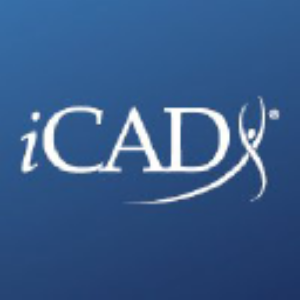SABCS 2024: New Research Assesses iCAD’s Image Based AI-Risk, Detection, and Breast Arterial Calcifications (BAC) Assessment Across Diverse Populations
Rhea-AI Summary
iCAD announced four AI-driven breast cancer research abstracts presented at the 2024 San Antonio Breast Cancer Symposium. The studies focus on ProFound AI Breast Health Suite and its applications in breast cancer detection and risk assessment across diverse populations.
Key findings include: higher prevalence of Breast Arterial Calcifications (BAC) in breast cancer patients, suggesting potential need for cardiovascular assessment; effectiveness of AI-driven short-term breast cancer risk assessment across racial groups and breast densities; and superior performance of a 10-year image-derived AI-risk model compared to the clinical Tyrer-Cuzick v8 model. The AI risk model identified 32% of breast cancers in 9.7% of women classified as high-risk.
Positive
- AI risk model showed superior performance compared to traditional clinical model
- AI-based risk assessment demonstrated consistency across racial groups and breast densities
- Technology capable of identifying 32% of breast cancers in high-risk population
- AI system shows potential for improving early detection and risk prediction
Negative
- None.
News Market Reaction
On the day this news was published, ICAD gained 4.23%, reflecting a moderate positive market reaction.
Data tracked by StockTitan Argus on the day of publication.
Reveals Higher Prevalence of Breast Arterial Calcifications (BAC) in Breast Cancer Patients, Suggesting Potential Need for Cardiovascular Assessment Alongside Oncological Treatment
NASHUA, N.H., Dec. 11, 2024 (GLOBE NEWSWIRE) -- iCAD, Inc. (NASDAQ: ICAD) (“iCAD” or the “Company”) a global leader in clinically proven AI-powered cancer detection solutions, announced today that four novel AI-driven breast cancer research abstracts have been accepted for presentation at the 2024 San Antonio Breast Cancer Symposium (SABCS), taking place from December 10-13, 2024. These clinical abstracts highlight the latest research in breast health AI, focusing on improving detection and risk prediction accuracy and assessing disparities across diverse populations.
Presenting Author Chirag R. Parghi, MD, MBA, Chief Medical Officer at Solis Mammography, will showcase three research abstracts during Poster Session 2, scheduled for Wednesday, December 11, 2024, from 5:30 to 7:00 p.m. CST. Additional contributing authors include Jennifer Pantleo, R.N., BSN; Julie Shisler, BS; Jeff Hoffmeister, M.D., MSEE; Zi Zhang, M.D., M.P.H; Avi Sharma, M.D.; and, Wei Zhang, PhD.
Additionally, presenting Author Mikael Eriksson, PhD, epidemiologist at Karolinska Institute, Sweden, will present research during general session 2, scheduled for Thursday, December 12, 2024 from 9:00 a.m. to 12:30 p.m. CST. demonstrating a 10-year image-derived AI-risk model, based on iCAD’s ProFound Risk solution, for primary prevention of breast cancer showed higher discriminatory performance than the clinical Tyrer-Cuzick v8 risk model.
Advancing Breast Health with AI
“These studies exemplify the critical role the ProFound AI Breast Health Suite can play in not only improving early breast cancer detection and risk prediction but also in addressing health disparities in diverse populations,” said Dana Brown, President and CEO of iCAD. “We are proud to collaborate with Solis Mammography and Karolinska Institute contributing to groundbreaking research that can elevate the standard of care in breast health worldwide. These partnerships demonstrate the potential of our technology to improve patient outcomes, and also opens pathways to broader adoption of AI in healthcare, driving growth in key markets.”
Dr. Chirag Parghi, Chief Medical Officer at Solis Mammography, added: “These findings underscore the transformative potential of AI in empowering clinicians to improve outcomes regardless of age, race or breast density. By addressing traditional gaps in breast cancer detection and risk assessment, AI has the potential to exponentially improve current and future state breast cancer detection.”
Poster Details:
P2-06-20: Use of an AI Algorithm to Determine the Prevalence of Breast Arterial Calcifications in Women Undergoing Screening Mammograms Based on Race, Age, and Cancer Status (SESS-2141)
This poster explores the potential of an AI algorithm to identify Breast Arterial Calcifications (BAC), which are calcium deposits in the arteries of the breast that are commonly detected during routine mammograms. The study demonstrates that the weighted prevalence and distribution of BAC increases with age, as expected in a screening population. Interestingly, BAC prevalence did not vary by race, suggesting that it could serve as an effective cardiovascular biomarker across racial groups. Furthermore, the AI-based BAC detection algorithm highlighted a higher prevalence of BAC in women with mammographically detected breast cancer, suggesting women with increased BAC and breast cancer may benefit from cardiovascular assessment in addition to their oncological treatment. In that sense, a conventional mammogram could identify the cardiac needs of patients prior to or at the time of breast cancer diagnosis, providing an opportunity for early cardiovascular intervention.
P2-06-24: Effect of an Image-Derived Short-Term Breast Cancer Risk Score in the Analysis of Breast Cancer Prevalence in Screening Populations by Race and Breast Density (SESS-2148)
This study delves into the development and validation of an AI-driven short-term breast cancer risk assessment score based on image-derived features, including mammographic density, and age. AI-generated case scores were shown to effectively stratify mammograms into categories with varying frequencies of cancer. The case scores did not vary significantly across racial subgroups in our dataset, suggesting that the accuracy of the AI software was consistent across races. The study concludes that an image-derived AI risk model is equally effective across race and density, providing accurate insight into short-term breast cancer risk. Based on the results, image-based risk scoring could offset known gaps in breast cancer detection by traditional mammography in patients with dense breast tissue and help address existing disparities across races. Findings from this study highlight the potential of AI to offer more consistent and equitable breast cancer risk assessments, improving both diagnostic accuracy and patient outcomes across diverse populations.
P2-06-25: Is Mammography Artificial Intelligence Consistent Across Race and Density? (SESS-2135)
This research focuses on the consistency of AI-based mammographic case scoring across different racial and breast density groups. The study emphasizes the potential of AI to provide equitable and reliable screening results, regardless of the patient's race or breast tissue density, two factors known to impact traditional mammography outcomes. For women with non-dense or fatty breast tissue, a low case score corresponded to a significantly lower frequency of cancer (1 in 11,363) compared to women with dense breast tissue who had a low case score (1 in 1,952). Although this finding was not statistically significant according to the Mann-Whitney U test, the difference between categories is notable, and the lack of statistical confirmation is likely due to the low absolute number of cancer cases in the low case score, non-dense cohort. Therefore, the negative predictive value of a low case score on a screening mammogram is presumably higher in women with non-dense breast tissue across a large dataset, suggesting a more reliable assessment for this group.
GS2-10: A long-term image-derived AI risk model for primary prevention of breast cancer
The research analyzed a two-site case-cohort of women aged 30-90 in a population-based screening study in Minnesota and the KARMA cohort from Sweden using an image-derived AI-risk model compared with the clinical Tyrer-Cuzick v8 model using clinical guidelines. Analyses were performed for risk of all breast cancer and restricted to invasive cancer alone. Using the National Institute for Health and Care Excellence (NICE) guidelines, considering women at
Join Us at SABCS 2024
Attendees are invited to view these posters during Poster Session 2 on December 11, 2024, from 5:30 to 7:00 p.m. CST. To learn more about iCAD's AI solutions, including the ProFound AI Breast Health Suite, visit iCAD’s website or contact iCAD for an interview at SABCS.
About iCAD, Inc.
iCAD, Inc. (NASDAQ: ICAD) is a global leader on a mission to create a world where cancer can’t hide by providing clinically proven AI-powered solutions that enable medical providers to accurately and reliably detect cancer earlier and improve patient outcomes. Headquartered in Nashua, N.H., iCAD’s industry-leading ProFound Breast Health Suite provides AI-powered mammography analysis for breast cancer detection, density assessment and risk evaluation. Used by thousands of providers serving millions of patients, ProFound is available in over 50 countries. In the last five years alone, iCAD estimates reading more than 40 million mammograms worldwide, with nearly
ProFound Detection v4 is FDA Cleared. ProFound AI v3 is FDA Cleared. CE Marked. Health Canada Licensed. ProFound AI Risk is CE Marked and Health Canada Licensed. Solutions may not be available in all geographies.
Forward-Looking Statements
Certain statements contained in this News Release constitute “forward-looking statements” within the meaning of the Private Securities Litigation Reform Act of 1995, including statements about the expansion of access to the Company’s products, improvement of performance, acceleration of adoption, expected benefits of ProFound AI®, the benefits of the Company’s products, and future prospects for the Company’s technology platforms and products. Such forward-looking statements involve a number of known and unknown risks, uncertainties, and other factors that may cause the actual results, performance, or achievements of the Company to be materially different from any future results, performance, or achievements expressed or implied by such forward-looking statements. Such factors include, but are not limited, to the Company’s ability to achieve business and strategic objectives, the willingness of patients to undergo mammography screening, whether mammography screening will be treated as an essential procedure, whether ProFound AI will improve reading efficiency, improve specificity and sensitivity, reduce false positives and otherwise prove to be more beneficial for patients and clinicians, the impact of supply and manufacturing constraints or difficulties on our ability to fulfill our orders, uncertainty of future sales levels, to defend itself in litigation matters, protection of patents and other proprietary rights, product market acceptance, possible technological obsolescence of products, increased competition, government regulation, changes in Medicare or other reimbursement policies, risks relating to our existing and future debt obligations, competitive factors, the effects of a decline in the economy or markets served by the Company; and other risks detailed in the Company’s filings with the Securities and Exchange Commission. The words “believe,” “demonstrate,” “intend,” “expect,” “estimate,” “will,” “continue,” “anticipate,” “likely,” “seek,” and similar expressions identify forward-looking statements. Readers are cautioned not to place undue reliance on those forward-looking statements, which speak only as of the date the statement was made. The Company is under no obligation to provide any updates to any information contained in this release. For additional disclosure regarding these and other risks faced by iCAD, please see the disclosure contained in our public filings with the Securities and Exchange Commission, available on the Investors section of our website at https://www.icadmed.com and on the SEC’s website at http://www.sec.gov.
CONTACTS
Media Inquiries:
pr@icadmed.com
Investor Inquiries:
John Nesbett/Rosalyn Christian
IMS Investor Relations
icad@imsinvestorrelations.com










